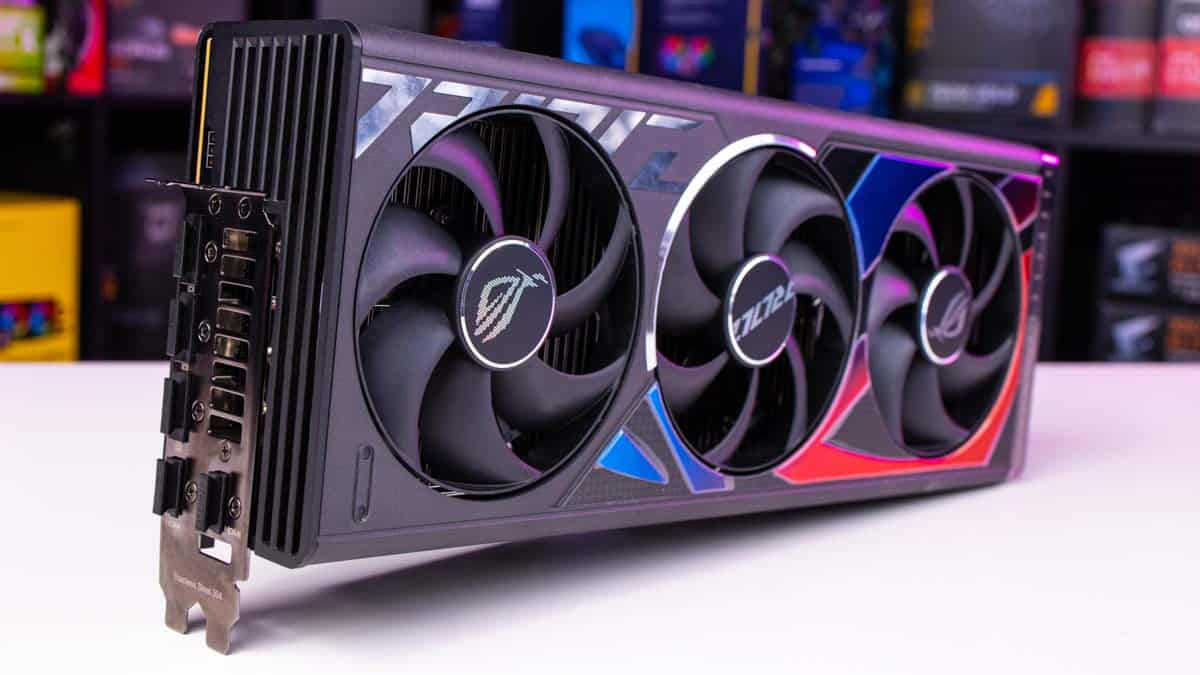CJ Attard Insights
Exploring the latest trends and insights in various industries.
GPU Chronicles: The Unsung Heroes of Gaming Performance
Discover the hidden power of GPUs and how they shape your gaming experience. Unveil the secrets behind the unsung heroes of performance!
Understanding GPU Architecture: How Graphics Cards Boost Your Gaming Experience
Understanding GPU architecture is essential for any gamer looking to enhance their gaming experience. A Graphics Processing Unit (GPU) is designed specifically to accelerate the processing of images and videos. It consists of hundreds or even thousands of smaller cores that work simultaneously to perform complex calculations. This parallel processing capability allows GPUs to render high-resolution images and manage intricate graphical tasks, which significantly boosts visual fidelity and frame rates in modern video games. As a result, a well-architected GPU can transform your gaming experience by delivering smoother gameplay and stunning graphics.
Several key components define the performance of a GPU, including its memory bandwidth, clock speed, and the architecture itself. Memory bandwidth refers to how quickly data can be read from or written to the GPU's memory, impacting texture quality and overall performance. The clock speed, measured in MHz, determines how fast the GPU processes instructions. Finally, newer architectures, such as NVIDIA's Ampere or AMD's RDNA, offer enhancements like ray tracing and improved energy efficiency, allowing gamers to enjoy richer environments and more realistic lighting effects. Understanding these aspects will help you make an informed decision when choosing a graphics card to elevate your gaming setup.

The Evolution of GPUs: From Early Graphics to Modern Powerhouses
The evolution of GPUs has radically transformed the way we interact with digital content. Originally developed to handle simple rendering tasks in the late 1980s, early graphics processing units were limited in functionality, often used to accelerate 2D graphics for basic gaming and applications. The introduction of 3D graphics in the mid-1990s marked a pivotal moment, leading to the need for more advanced processing capabilities. As demands grew, manufacturers began to innovate, enhancing GPU architecture, memory bandwidth, and parallel processing power, which laid the groundwork for the sophisticated graphics we see today.
Fast forward to the modern era, and today's GPUs are true powerhouses, capable of rendering breathtaking visuals and supporting complex computations beyond traditional gaming. With machine learning, artificial intelligence, and real-time ray tracing becoming mainstream, GPUs now play a critical role in various industries, including automotive, healthcare, and financial services. The shift towards integrated graphics solutions and the rise of multi-GPU setups have further revolutionized the market, offering consumers and professionals unprecedented performance and efficiency. As technology continues to progress, the future of GPUs promises even more groundbreaking innovations.
What Makes a Great GPU? Key Features You Should Consider for Gaming
When it comes to gaming performance, a great GPU (Graphics Processing Unit) can make all the difference. To ensure you choose the right one, consider essential features such as VRAM, clock speed, and thermal efficiency. VRAM, or Video RAM, is crucial for storing textures and other graphical data, with 8GB being a good starting point for modern games. Additionally, clock speed, measured in MHz, indicates how many operations a GPU can perform per second, influencing overall performance. Lastly, a GPU with good thermal efficiency will maintain performance by managing heat effectively, which is vital during long gaming sessions.
Furthermore, you should assess other factors like ray tracing capabilities, driver support, and compatibility with the latest technologies. Ray tracing enhances lighting and shadow effects for a more realistic gaming experience, while solid driver support ensures that your GPU runs optimally with the latest games and software. Also, check for compatibility with cutting-edge technologies like DLSS (Deep Learning Super Sampling) and SSR (Screen Space Reflections), which can significantly enhance graphics performance. By carefully evaluating these features, you can identify a GPU that not only meets your gaming needs but also provides longevity for future titles.